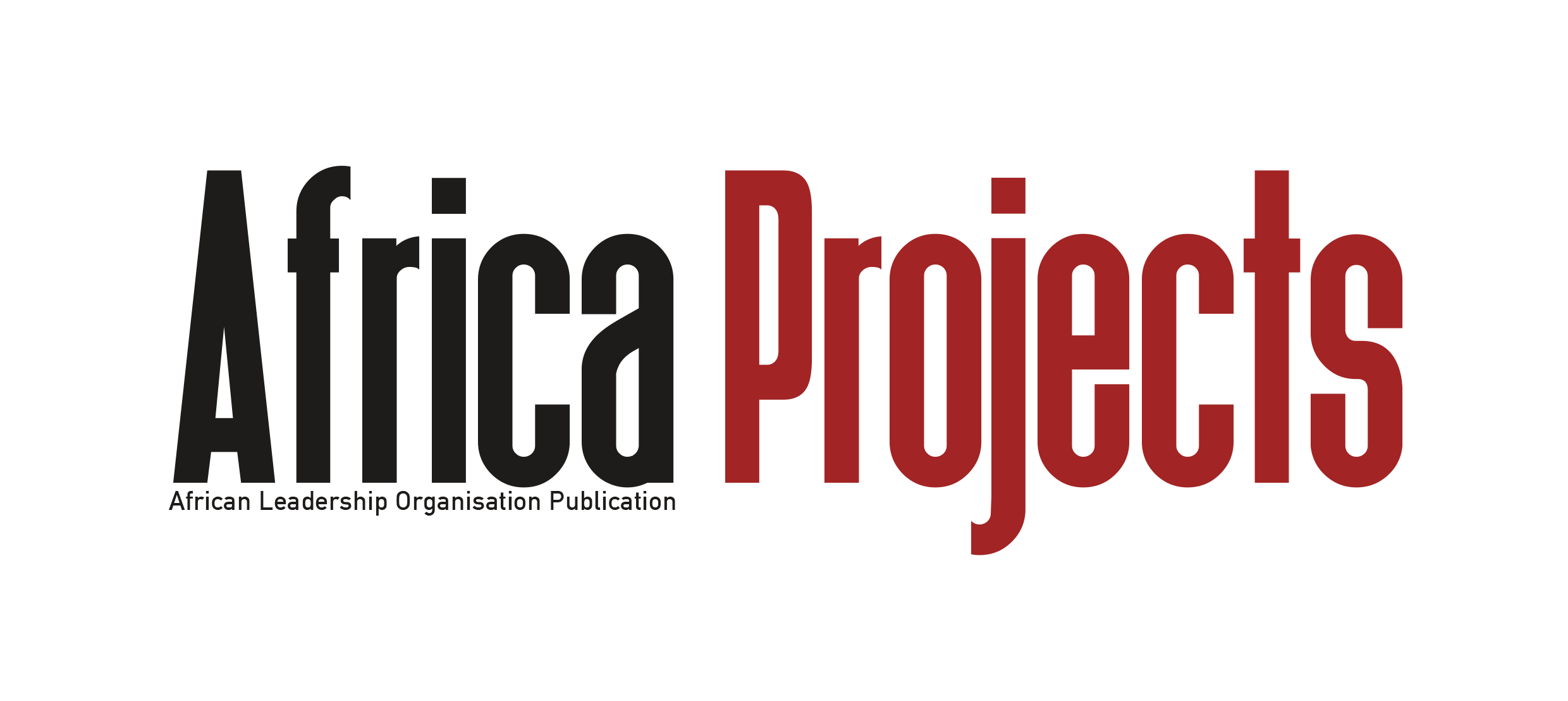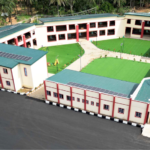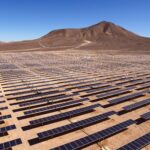- Home
- Features
- Startup Zone
- Projects
- Policies
- Shop
- Policies
- Projects
- Startup Zone
- Country Spotlight
- Analysis
- Tech
- Policies
- Projects
- Startup Zone
- Country Spotlight
- Analysis
- More
- Beyond the Kalashnikov: Africa’s Shift Toward Technology-Driven Warfare
- Afrail Express: Uniting a Continent on Rails
- AFRICA’S ENERGY CORRIDORS: CONNECTING POWER, PEOPLE, AND PROSPERITY
- Startup Lions Campus: Empowering Kenya’s Digital Generation
- L’Art de Vivre’s Le Paradis de Mahdia: Tunisia’s Model for Sustainable Luxury
- The Lobito Corridor: Rewiring Africa’s Trade Arteries Through Strategic Infrastructure
- AFRICA’S GREEN ENERGY TRANSITION: A BEACON OF HOPE FOR CLIMATE ACTION
- Dangote Refinery: Showcasing Africa’s Project Success Story
- AFRICA GREEN ECONOMY: ALL YOU NEED TO KNOW
- The Most Important Amicus Brief in the History of the World
- The Rise of Indigenous UAVs: Africa’s Drone Capabilities in Warfare and Surveillance
- AFRICA’S LARGEST OIL PRODUCERS: A COMPREHENSIVE OVERVIEW
- Beyond the Kalashnikov: Africa’s Shift Toward Technology-Driven Warfare
- Afrail Express: Uniting a Continent on Rails
- AFRICA’S ENERGY CORRIDORS: CONNECTING POWER, PEOPLE, AND PROSPERITY
- Startup Lions Campus: Empowering Kenya’s Digital Generation
- L’Art de Vivre’s Le Paradis de Mahdia: Tunisia’s Model for Sustainable Luxury
- The Lobito Corridor: Rewiring Africa’s Trade Arteries Through Strategic Infrastructure
- AFRICA’S GREEN ENERGY TRANSITION: A BEACON OF HOPE FOR CLIMATE ACTION
- Dangote Refinery: Showcasing Africa’s Project Success Story
- AFRICA GREEN ECONOMY: ALL YOU NEED TO KNOW
- The Most Important Amicus Brief in the History of the World
- The Rise of Indigenous UAVs: Africa’s Drone Capabilities in Warfare and Surveillance
- AFRICA’S LARGEST OIL PRODUCERS: A COMPREHENSIVE OVERVIEW
- Beyond the Kalashnikov: Africa’s Shift Toward Technology-Driven Warfare
- Afrail Express: Uniting a Continent on Rails
- AFRICA’S ENERGY CORRIDORS: CONNECTING POWER, PEOPLE, AND PROSPERITY
- Startup Lions Campus: Empowering Kenya’s Digital Generation
- L’Art de Vivre’s Le Paradis de Mahdia: Tunisia’s Model for Sustainable Luxury
- The Lobito Corridor: Rewiring Africa’s Trade Arteries Through Strategic Infrastructure
- Startup Zone
Top Insights
Financing Africa’s Renewable Boom: The Role of Public and Private Investors

The burgeoning renewable energy sector in Africa demands immediate and creative financing options. The continent is blessed with abundant renewable resources—solar, wind, hydro, and geothermal energy—but unlocking their potential necessitates a concerted effort from both public and private investors. Public-private partnerships (PPPs) are emerging as a crucial mechanism to bridge the financing gap, paving the way for large-scale energy infrastructure development. However, the path to realising Africa’s renewable energy objectives is fraught with challenges, particularly due to high government debt levels and inadequacies in existing infrastructure.
The Importance of a Collaborative Approach
The future of Africa’s energy landscape hinges on the collaboration between governments, investors, and innovators. Governments are recognising the urgency of transitioning to sustainable energy sources and are allocating significant funds towards this goal. Yet, high debt levels and regulatory complexities often hinder progress. To overcome these obstacles, a multi-faceted financing strategy is vital—one that encompasses both domestic and international funding sources.
READ ALSO: Green Growth Or Gridlock? Financing Africa’s Renewable Ambitions In A Fossil-Heavy Landscape
Innovators in the renewables sector are crucial for developing cutting-edge technologies and methods for energy generation. Nevertheless, these companies require substantial financial backing to scale operations and effectively contribute to the grid. Herein lies the need for a cohesive approach, aligning innovative financial models with the evolving requirements of the renewables sector.
Overcoming Barriers to Investment
Africa’s renewable energy market faces numerous barriers to entry, including inadequate infrastructure, complex regulations, and limited access to financing models. Emerging financial institutions, such as Nedbank, the Development Bank of South Africa (DBSA), and ABSA, are tailoring financial products to support renewable projects. These specialised offerings play a pivotal role in creating an investment-friendly climate while addressing the unique challenges posed by the continent’s energy landscape.
Government Policy and Regulatory Support
The role of government policy cannot be overstated. Many African nations are implementing regulations to foster renewable energy development, emphasising the importance of supportive frameworks that encourage investment. For instance, Ghana has initiated a procurement scheme designed to promote competitive pricing for electricity generated from renewable sources.
African countries must retain sovereignty over their energy decisions to establish regulations that align with their local contexts. By empowering private investors through conducive policies, governments can lay the groundwork for a sustainable and resilient energy future.
The Role of Public-Private Partnerships
Public-private partnerships represent a powerful financial strategy for advancing large-scale renewable energy projects. Employing pooling of resources, expertise, and risk-sharing, PPPs can effectively stimulate sustainable energy growth. In South Africa, for example, new regulations have been introduced to facilitate private investment in grid-connected renewable energy while ensuring that the government continues to support essential transmission and distribution networks.
These partnerships exemplify how strategic collaboration between government entities and private investors can accelerate the pace and scale of solar, wind, and other renewable energy technologies.
The Role of Banks and International Funding
Banks are critical players in the financing landscape for renewable energy initiatives. By offering loans, project finance, and guarantees, they can help bridge the gap between the capital required and available funding, catalysing project advancement. South Africa’s Standard Bank, for instance, remains eager to champion renewable energy infrastructure projects as part of the just transition toward sustainable energy.
Moreover, international organisations and development agencies are bolstering efforts in Africa by providing critical funding support. From grants to technical assistance, these institutions nurture knowledge exchange and bolster capacity development. A notable example is the $311 million regional project financed by the World Bank aimed at enhancing grid-connected renewable energy capacity and promoting regional integration in West Africa.
Initiatives Supporting Clean Energy Entrepreneurs
Innovative platforms like the Energy Investment Village (EIV) foster connections between renewable energy startups and potential investors, advancing the continent’s clean-tech movement. Initiatives like these, which encourage pitch events and investment forums, empower emerging companies and facilitate access to the financing necessary for their projects.
Benefits Beyond Energy Production
Investments in renewable energy yield far-reaching benefits beyond energy production; they stimulate economic growth and job creation. Research indicates that renewables and related technologies already account for approximately 1.9 million jobs in Africa, a figure that can grow exponentially as investments increase. The energy transition creates demand for innovative solutions and services, furthering the potential for economic transformation.
The Path Ahead
Africa’s transition towards a renewable energy future solves its pressing energy challenges. With an estimated annual investment requirement of $190 billion to meet energy and climate goals, an urgent call to action is apparent. While significant challenges remain, the emergence of tailored financial models, increased collaboration, and focused government policies can unlock the continent’s vast renewable energy potential.
As we move forward, the continent is projected to see global investments in clean energy soar to $2 trillion; Africa must harness this momentum. By prioritising sustained public-private cooperation and innovative financing, the continent can set on a path towards a sustainable, low-carbon energy future—a future that not only empowers its population but also contributes meaningfully to global sustainability goals.
Recent Posts
Related Articles
Housing PPP Mega Projects Redefining Affordable Living
Rapid urbanisation, population growth, and rising construction costs have created a severe...
ByafricaprojectFebruary 3, 2026Cold Storage and Food Preservation Projects Strengthening Food Security
Food security remains one of Africa’s most pressing development challenges, despite the...
ByafricaprojectJanuary 30, 2026SHADOWS ACROSS BORDERS: AFRICA’S BATTLE AGAINST CROSS-BORDER BANDITRY AND EMERGING SECURITY STRATEGIES
Cross-border banditry has become one of West Africa’s most destabilising security challenges,...
ByafricaprojectJanuary 23, 2026The Rise of Hub Airports and Regional Aviation Powerhouses
Across Africa, the aviation sector is undergoing a major structural shift as...
ByafricaprojectJanuary 22, 2026











